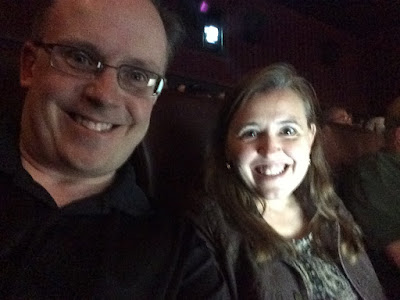Sandra Bullock's "Gravity" ushered in the trend, followed by Christopher Nolan's heady "Interstellar." Last year we were graced with the whip-smart survival flick "The Martian" (based on the brilliant novel by Andy Weir).
These movies have steered more toward the quiet, intellectual side of the science fiction spectrum -- more "Close Encounters of the Third Kind" than "Independence Day." The films have garnered awards nominations -- "Gravity" and "The Martian" were both nominated in the Best Picture category at the Oscars.
Keeping the streak alive in 2016 is director Denis Villeneuve's "Arrival."
The film is based on the story "Story of Your Life" by Ted Chiang.
Following form, it is a brooding and cerebral science fiction film that plunges our world (and the film's main characters) into a space-induced existential crisis.
Amid all the other bombastic sci-fi and fantasy films unleashed at the box office each year, it is nice to "think" at the movies every so often. And "Arrival" certainly exercises the synapse.
The film follows Louise Banks, a sullen linguistics professor who is called upon when 12 mysterious spaceship pods arrive at various locations across the globe.
It's a classic setup -- seen many times in this genre and various sub-genres.
Amy Adams plays Banks -- sans makeup and uber-melancholy.
Gingers have become "de rigueur" in this latest string of autumnal sci-fi films -- Jessica Chastain in "Interstellar" and "The Martian" -- and, like her predecessors, Adams does a solid job winding her way through well-tread territory.
We learn early on that Louise Banks is a lone soul -- a single woman whose teen daughter died via terminal illness (the audience is led to believe it is cancer). Banks is grieving at the loss, and appears to be floating listlessly through life.
Banks's fate changes when -- while teaching a college linguistics course -- news breaks that alien ships have appeared at various points on the map.
The world develops a case of "tunnel vision" surrounding the arrival. Panic, fear and anxiety set in -- despite the fact that the alien ships seem benign.
Banks is soon approached by Col. Williams (Forest Whitaker), who needs her help finding a way to communicate with the aliens.
She soon accepts the government's overtures and heads to rural Montana, where one of the alien ships is located.
What follows are several cryptic in-ship encounters between Banks, her fellow team members, and the aliens -- seven-legged creatures dubbed "heptopods" (which look like walking squid with rhinoceros skin).
The heptopods communicate using dark smoky circle symbols that look like a cross between coffee mug rings and Rorschach patterns – and Banks and mathematician Ian Donnelly (a somewhat miscast Jeremy Renner) do everything in their power to decipher the symbols.
In a number of these "alien invasion" movies, a scant amount of time is spent deciphering languages. Oftentimes, a plot device is used to expedite the process and get to the meat of the narrative.
Not so with "Arrival." The crux of the film is deciphering the language.
Many will ruminate on whether or not "Arrival" is successful on that point.
As Banks points out during the film, "language is messy."
In my humble opinion, "Close Encounters of the Third Kind" offered one of the more novel ways of communicating with other-worldly visitors (John Williams's five-note tune was brilliant).
To go any further in analyzing plot points would be to give too much away.
"Arrival" eschews big moments and head-slapping epiphanies for subtle progression and gentle twists.
There are aspects of this movie that reminded me of the aforementioned "Interstellar" (although, "Arrival" doesn't strive for the grandiosity and spectacle of Christopher Nolan's epic).
Rather, both films employ mind-bending plot points that twist and turn like Dutch artist M.C. Escher's "Relativity" lithograph -- looping infinitely along.
In movies such as this, the journey is as much the reward as the destination.
"Arrival" achieves a relative balance in terms of being both hopeful and tragic. In that regard, it might be the perfect "zero-sum game"...
"up's down, down is out, out is in
time falls, water crawls, are you listenin'?
stairways circle back to where you been
stairways circle back to where you been
stairways circle back to where you been"
-- Escher's World, Chagall Guevara (1991)
Rated PG-13, Runtime: 1 hr, 56 min
Trailer:





